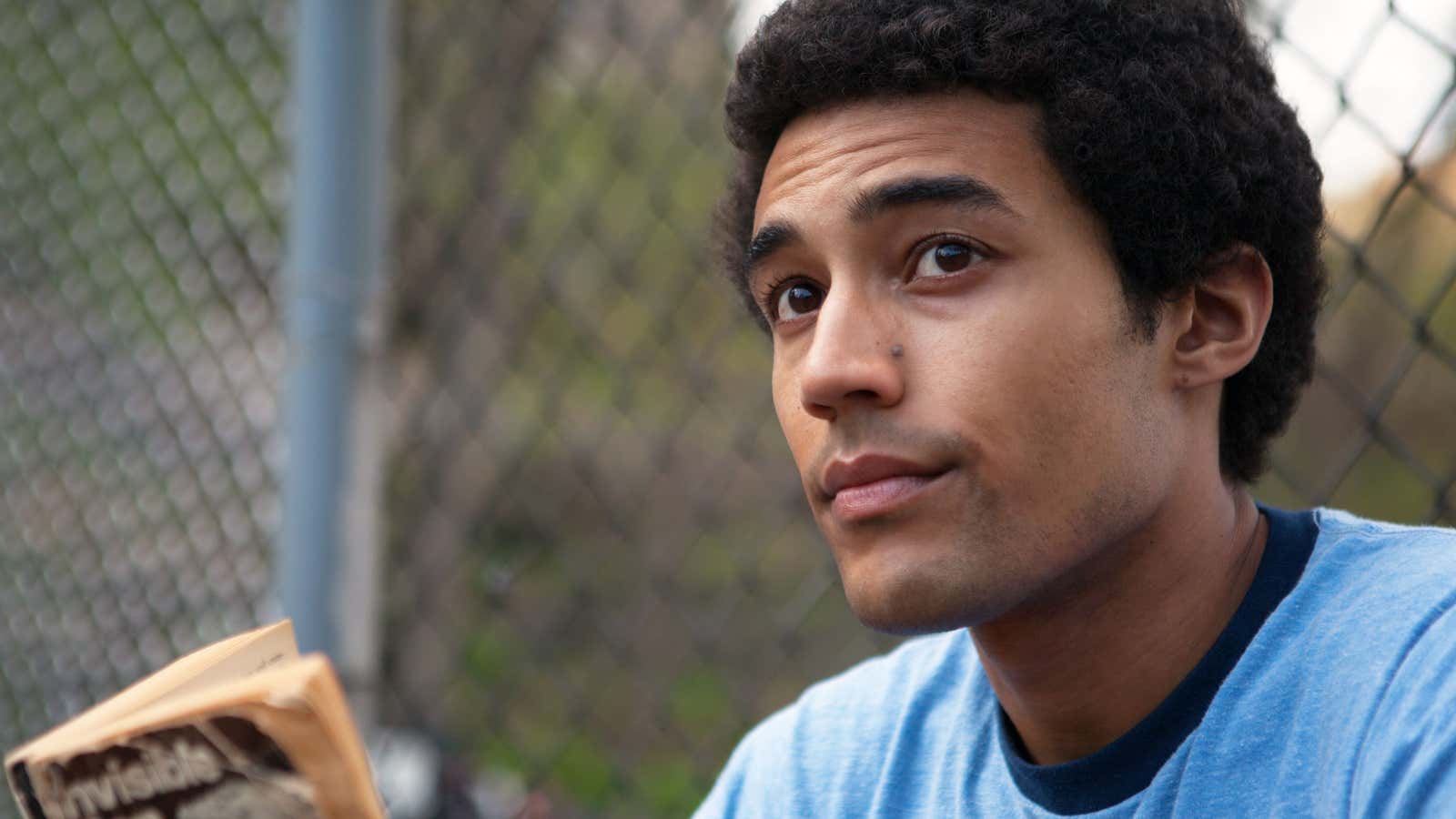Today, Netflix released the first full-length trailer for Barry, a film about US president Barack Obama’s time as a student at Columbia University.
“You a whole different type of brother,” a man says to a young Obama (played by Devon Terrell). ”You do realize that, right?”
To say this film is timely would be a vast understatement. Several critics have called the biopic, which garnered positive reviews after premiering at the Toronto Film Festival, a moving story about race and identity in America. As soon as Obama hands over the White House keys to president-elect Donald Trump, the history of his presidency will begin to take shape, and works of art, like Barry, will help shape that story.
Obama was born in 1961 in Honolulu, Hawaii to a white mother (from Kansas) and a black father (from Kenya). He attended Occidental College in Los Angeles before transferring to Columbia as a junior in 1981, when the film takes place.
Barry will explore “a pivotal year in the life of the future 44th President of the United States, during which he developed the foundations for his views on race, government, and what it means to be American,” according to Netflix.
This is the second film this year about the US president’s formative years. In August, Southside With You reimagined his first date with future wife and US first lady Michelle Obama, who was an attorney at a prominent Chicago law firm assigned to advise the eager summer associate in 1989.
A president’s legacy (or any historical figure’s legacy, for that matter) and films about that person exist in a feedback loop. The legacy shapes how films depict a president, and those films, in turn, decide how he’s ultimately remembered.
Already there’s a sense that Obama’s place in the American cinematic library is unique. It’s rare for a sitting president to have multiple positive portrayals of him come out while he’s still in office. Barry is a far cry from 2006’s Death of a President, which imagined a fictional future in which then-president George W. Bush had been assassinated.
Even Abraham Lincoln and George Washington, despite their iconic roles in American history, have rarely been the heroes of films. And cinematic depictions of John F. Kennedy, a glamorous president to whom Obama is often compared, have only hinted at the former president’s early life, instead focusing more on subjects tangential to him—his wife (Jackie), the Cuban Missile Crisis (Thirteen Days), or his shocking death at the hands of a sharpshooter, and the subsequent investigation (JFK).
In Obama’s case, Hollywood is thus far most interested in his formative years, when he was a young man of mixed race looking for his place in the world. While the more traditional biopics about his time in political office are surely to come, it’s telling that this aspect of the president’s life—his multiracial, multicultural, quintessentially American upbringing—is what filmmakers have emphasized.
Obama has helped future screenwriters out by writing two memoirs, Dreams from My Father and The Audacity of Hope, from which they’ll no doubt draw inspiration. It’s quite possible that Barack Obama will prove to be America’s most cinematic president, one whose life will continue to be explored by artists generations hence.
